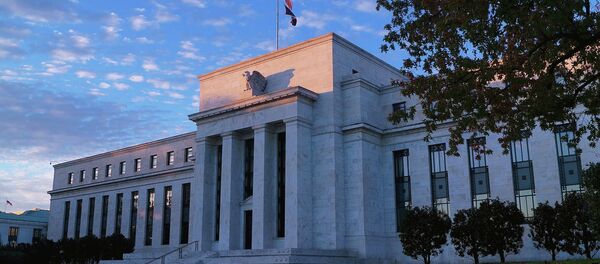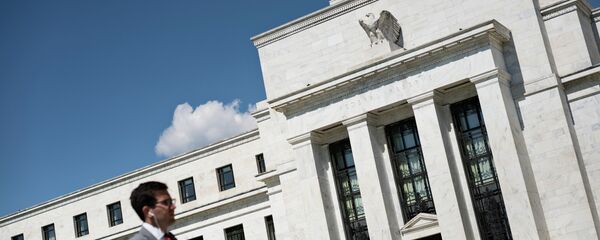Kristian Rouz – The Federal Reserve has published its Summary of Commentary on Current Economic Conditions, known as the Beige Book, observing that wage pressure is mounting in the economy driven by the ultra-loose monetary conditions, thus supporting the case for a soon hike in base borrowing costs.
The issue of wage stagnation debate is a long lasting one in American economics and politics, and whilst the Fed has suggested some optimistic shifts emerging, the pickup in wages is still insufficient to overcome the lack of dynamism in disposable incomes.
"Wage growth held fairly steady at modest levels, although some districts reported rising pressure for certain sectors," the Beige Book reads.
This report is a compilation of feedback from various business sources across the country, and the employers reported feeling the mounting pressure to pay more in salaries as the amount of qualified workforce is insufficient across select sectors.
Other sectors, such as manufacturing, construction, energy, and utilities, have been more pessimistic recently, with low operational profitability and low labor productivity dealing a double blow to their performance. Yet, the urge for higher minimum pay keeps roaring across the nation.
"The labor inflation especially in the last year has been significant," John Hartung, the CFO for Chipotle Mexican Grill, a fast food chains, said. "We haven't passed on the cost of those higher wages (to customers)."
With the jobless rate at 5.0pc, close to full employment, but with the labor participation rate at just above 60pc, the lowest in almost 50 years, the job market situation is controversial. On the one hand, the benchmark indicators suggest enough health in the macro situation to offset the possible spillovers of a hike in rates. On the other hand, the lack of dynamics across most indicators is evidence of fragility and systemic weakness.
The competition for talent is rife in the most lucrative sectors of the economy, in particular, finance, IT and across a wide spectrum of public-private ventures. Yet, an average measure of wage growth remains modest at best, with signs of persistent weakness still there.
The broader measure of inflation is currently at 1.7pc year-on-year, below the Fed’s target. Average weekly pay has risen from $730 in 2008 to almost $830 this year, but in adjusted for inflation, the $730 of 2008 equals roughly $817 now.
Wages have effectively failed to grow during nearly seven years into the post-crisis recovery. Meanwhile, ‘wage pressures’ are not immediately translated into bigger paychecks, leaving many Americans, lucky enough to have a job, wondering.



